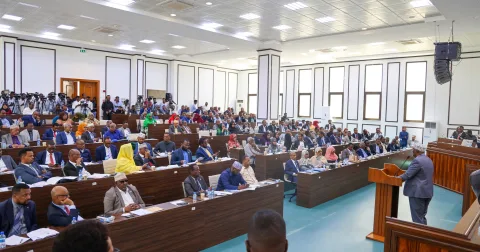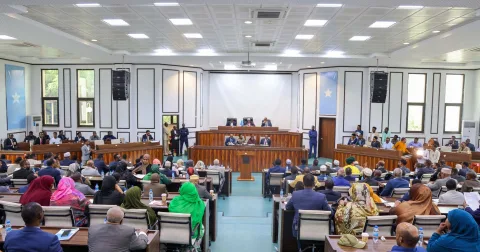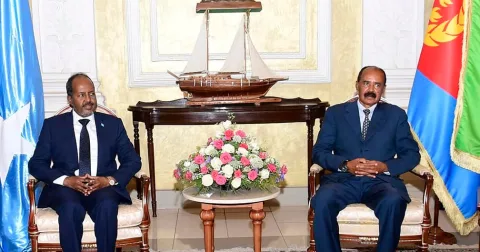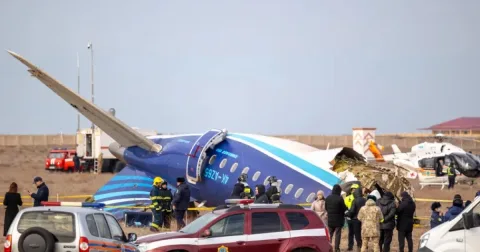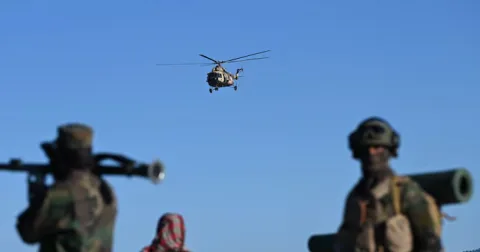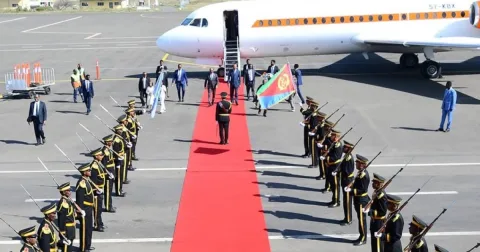By Onesime Niyungeko Friday, October 28, 2011 BUJUMBURA, Burundi—Egide Hatungimana was one of 51 Burundian soldiers…

![]()
By Onesime Niyungeko
Friday, October 28, 2011
BUJUMBURA, Burundi—Egide Hatungimana was one of 51 Burundian soldiers killed in a firefight with al-Qaida-linked militants in Somalia last week, his brother says. But the body has not been delivered to his family, which only found out about the death in a call from a fellow soldier.
Intensified fighting in Somalia has underscored that tiny Burundi, one of only two nations contributing troops to an African Union force in the anarchic nation, is bearing a heavy burden with dozens of its soldiers reportedly killed in recent clashes. Some Burundians say their country is sacrificing too much and are calling on other nations to assist.
Family members in the central African nation are awaiting word from the Burundian government, which has so far refused to publicly disclose its losses. The silence has angered families even as Burundi’s government is affirming its commitment to the AU mission in Somalia, calling on the troops to “increase effort and vigilance” until al-Shabab is defeated.
“I was expecting a prompt reaction from the government or army,” said Leonard Nininahazwe, the slain peacekeeper’s older brother. Nininahazwe wonders how to raise his brother’s 5-month-old son Joe, whose mother died giving birth to him.
The first Leonard heard of his brother’s death was when another Burundian soldier called him from Somalia, he said. He then went to a military office in Burundi, where he said he was shown a list with 51 names. His brother’s name was on it, he said. The list seemed to be the names of those killed in last week’s fight for Mogadishu’s Deynile neighborhood.
Burundian troops took heavy losses in that battle. Afterward, insurgents displayed dozens of bodies to local journalists. One photographer said some were Somali but at least 19 others were clearly foreign and were wearing AU uniforms and body armor. The AU says 10 soldiers were killed and two are missing.
Burundi’s government spokesman Philip Nzobonariba acknowledged that “Burundi has lost soldiers,” but did not say how many.
Burundi, a nation of 10 million, supplies about half of the 9,000 AU peacekeepers in Somalia, a country that has been mired in war and anarchy for more than 20 years. Conditions have improved since the Ugandan and Burundian troops were first deployed in 2007, when rations were so poor that some suffered from malnutrition. In 2009, 33 soldiers mutinied because their salaries had not been paid.
At one point, AU soldiers held only a few blocks of Mogadishu. Now they control almost all the capital because of an offensive against al-Shabab that began in August. But the gains have been costly. Before last Friday’s fight for Deynile neighborhood, the deadliest day had been a battle last February for the former Defense Ministry, in which 43 AU troops were killed. Burundi officials did not release those figures either.
One Somali official told The Associated Press that during the fight for Deynile Burundian soldiers lost between 30 and 50 soldiers in a single day.
Somalia’s al-Shabab militants are vowing to strike inside Burundi unless the peacekeepers leave. It’s an ominous threat because the group has shown it can stage large-scale attacks outside Somalia. In July 2010, 76 people were killed in al-Shabab bombings in Uganda.
“Your sons continue to perpetrate unspeakable atrocities against our innocent families in Somalia,” a recent al-Shabab statement read.
Burundi’s government has called on the international community to offer more support for Somalia, and some say it’s time for other African countries to help with military might. A peace agreement prohibits Somalia’s neighbors from sending troops to the force, particularly archrival Ethiopia.
At different times, Nigeria, Djibouti, and Guinea have all indicated that they might be willing to contribute troops, but so far none of them has.
“It’s true we’re there for international solidarity with the people of Somalia,” said Gabriel Rufyiri, a civil society activist in Burundi. “But if other countries do not contribute in troops and materiel, our troops should pull out.”
In addition to the AU force, Kenyan troops are also in Somalia after invading the neighboring country this month to neutralize al-Shabab threats along the shared border.
Burundi, slightly smaller than Maryland, is nestled between Rwanda, Tanzania and Congo. It has been bedeviled by the same ethnic conflicts that saw Hutus and Tutsis turn on one another during a 1994 genocide in Rwanda. Occasional bouts of ethnic violence still flare up.
In 2010, the country held only its second direct presidential election since its 1962 independence from Belgium. Opposition members boycotted the vote, saying they feared it would be rigged.
Source: Associated Press
